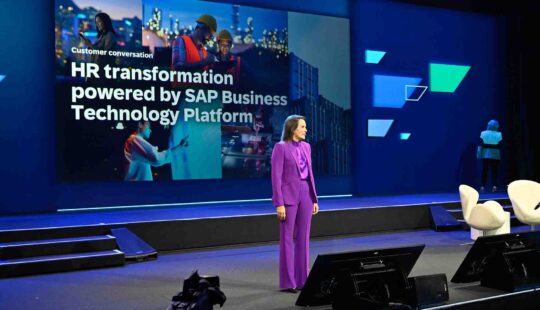SAP’s creation of the human experience management (HXM) category in 2019 reflected a new kind of HR: one that is rooted with the employee at the center of business. HXM signaled a move beyond efficiency to culture and mindset, and from siloed HR processes to inclusive and purposeful career journeys.
HXM and the role of HR has continued to evolve. In this transformative time, mindsets have shifted from thinking about workers in the context of who they are as employees to recognizing them as multidimensional humans. We recognize that families, aspirations, dreams, and even fears come to work every day. Our human side is no longer a liability, but something to celebrate. And being human at work opens up the possibility to pursue infinite growth and limitless potential. Putting to work our human traits and capabilities is the path for organizations and individuals to unlock creativity, ingenuity, and passion – and tackle new challenges.
HR strategies also shifted from a ‘one-size-fits-all’ packaged approach to individual-driven careers that recognize unique strengths, passions, and motivations. This shift from roles as the building block of an organization to people-based strategies creates huge opportunities for HR to lead the conversation and drive change. How do we unlock human potential beyond a defined job description? And how do we shift our own practices to embrace the opportunity shift to people and skills?
We put together the four faces of HR to share and recognize the ingenuity in creating, testing, and experimenting with new approaches for modern employee experience management. These four faces reflect a compilation of ideas generated following much reflection and observation of how the role of HR is shifting, rapidly and in real time, for our customers. We validated and enriched the aspirations for each role with our research-based SAP SuccessFactors 2021 Meta-Trends Analysis.
Being research and practice evidenced, we find these faces to be a work in progress and achieving each strategic role will continue to evolve. Each role complements each other and is not mutually exclusive. In fact, you will likely see yourself in multiple roles.
Culture Advocate: The Face of Identity
Persistent and organizationally savvy, the Culture Advocate leverages positivity, purpose, and belonging to make ambitious organizational shifts. From innovation culture and learning to diversity, equity, and inclusion, the Culture Advocate shapes positive change through action. Culture is the prerequisite for meaningful transformation. No longer just talk, culture is tackled with strategy and action! The Culture Advocate doesn’t need to rely upon intuition. They form strategies with real insights into organization mindsets, behaviors, and values and inspire change from the bottom up.
Chief Empowerment Officer: The Face of Motivation
Bold and confident, the Chief Empowerment Officer inspires employees and opens doors. They break boundaries to ensure impact and contribution have little to do with title or hierarchy. From intern to vice president, they ensure the entire workforce has opportunity to connect to meaningful work and create an impact. They combat ‘stay-in-your-lane’ thinking and manager protectionist strategies, busting job descriptions and team boundaries along the way. The Chief Empowerment Officer believes in the power of an intrinsically motivated workforce powered by opportunity, support, and trust.
Agile Orchestrator: The Face of Possibility
The Agile Orchestrator busts traditional ways of working and transforms the organization to be ready for anything. They strive for an open and adaptable workforce at all levels and for individuals, teams, and organizations. Agility means experimenting and testing new organization structures and disrupting at times for good. Orchestrators enable employees to become individually adaptable with exploration and stretching of skills to gain competence and self-efficacy, ultimately to become fully confident to thrive in the face of change. They ensure that dynamic behaviors are fully supported with agile talent management processes from recognition and rewards to work assignments and team-based goals.
Operational Architect: The Face of Innovation
Confident and curious, the Operational Architect finds novel solutions to workplace challenges by leveraging innovative technologies. The architect has an experimentation mindset, which fuels a passion to test and pilot new ideas. They look to technology and innovation as a behavior and culture lever in addition to increasing productivity and automation. Success is measured by the experience and outcomes for employees, managers, and the HR team. Experience is equally as important as efficiency flow. Pioneering and ambitious, this face of innovation iterates to improve the entire work experience.
The four faces represent limitless potential and opportunity. As HR organizations expand their role, they will look to these four distinct groups to drive innovation and culture change in order to expand their impact and contribution to the business.
Amy Wilson is SVP of Products & Design at SAP SuccessFactors.
Julie Bartholic is vice president of Product Innovation Design at SAP SuccessFactors.



